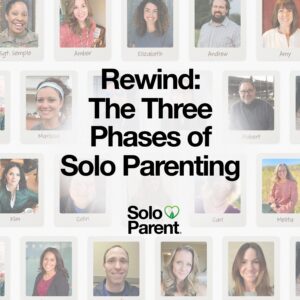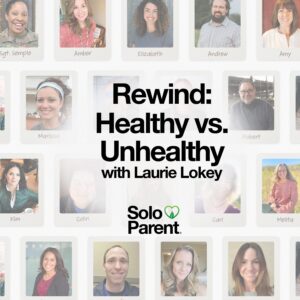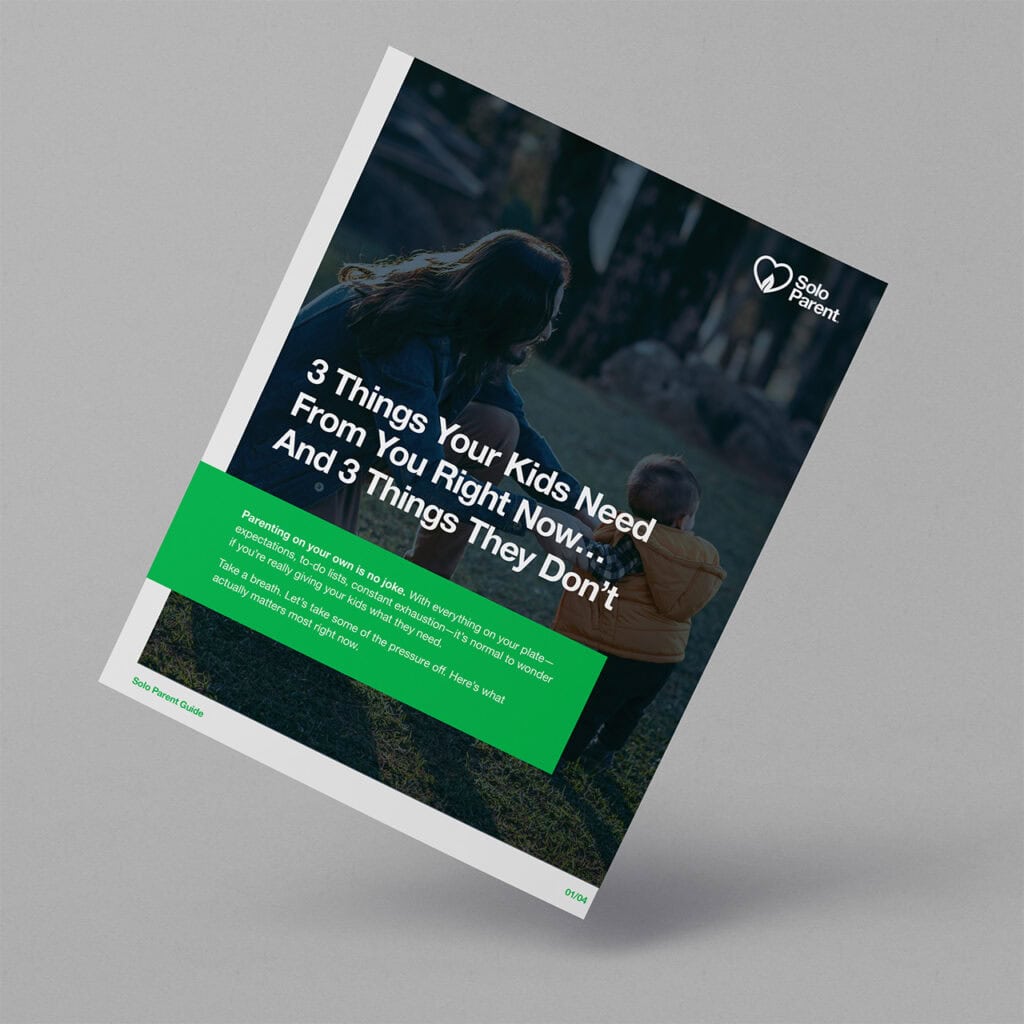Let’s face it—raising kids without a partner in the home comes with a unique set of challenges. And one of the biggest? Teaching them what healthy love looks like when the model they’ve seen may be broken, inconsistent, or completely absent.
If you’ve ever asked yourself, “How can I model something I don’t have?”—you’re not alone.
But here’s the hopeful truth: You don’t have to be in a romantic relationship to teach your kids what healthy love looks like. Love, at its core, is about connection, empathy, safety, and respect. And that’s something we can model every single day—through how we show up in our friendships, our family dynamics, and our relationship with ourselves and our kids.
Let’s unpack this in three main ways:
1. Relationships Are Relationships
Love doesn’t start and stop with marriage. Our kids are constantly watching how we interact—with them, with friends, with strangers at the grocery store. Every one of those moments can either reinforce or redefine what love looks like to them.
Healthy relationships (romantic or not) share core foundations:
- Mutual trust and respect
- Open communication
- Safe emotional space
- Healthy boundaries
- Empathy and honesty
You don’t need a spouse to demonstrate these things. You just need intention.
When we listen to our kids, when we show up for our friends, when we apologize after blowing up—we are teaching love. When we check in emotionally and allow our kids to do the same with us, we are showing them what real connection feels like.
As John Gottman puts it: “A good relationship is one in which you feel safe and loved… not necessarily perfect, but real, honest, and respectful.” That’s something we can model every day, in the ordinary and the imperfect.
2. Setting the Tone Starts With Us
Maybe the tone’s already been set in your home—and it hasn’t been great. That’s okay. You’re not stuck there. It’s never too late to rewrite the story.
One mom shared that her teenage son had the maturity to tell her, “Mom, sometimes when you ask questions, it feels accusatory.” That one moment became a pivot point in their relationship—not because she was perfect, but because she was willing to listen.
Your tone with your kids—the way you react, the way you discipline, the way you love—sets the emotional climate of your home. And that climate matters.
That means doing our own work. Loving our kids starts with learning to love ourselves. Not in a cheesy, self-help sort of way—but in the real, gritty, courageous act of acknowledging what we bring to the table.
If you don’t know where to begin? Start small. One mom said she began making a list of things she liked about herself—“I’m a good listener,” “I care deeply about my kids”—and shared it with friends to get their input. It’s amazing what we miss about ourselves that others can so easily see.
Loving yourself creates the emotional margin to love your kids more fully. And that love will help them feel safe enough to open up when life gets hard.
3. When Our Kids Are in Unhealthy Relationships
Here’s the hard part—we won’t always be able to protect our kids from pain. Sometimes, they’ll end up in unhealthy friendships or dating relationships. And we’ll feel helpless.
The temptation is to rush in and fix it.
But real growth often happens through experience. Our job is to create a nonjudgmental space where they feel safe to process what’s happening.
One mom shared her son was dating a girl who would send alarming messages in the middle of the night. Instead of cutting things off completely, she chose to ask questions like, “Do you like how you’re being treated?” or “How does this relationship make you feel overall?”—not to control him, but to help him think critically and gain insight for himself.
And sometimes, that’s the only way.
Another dad shared that his daughter didn’t tell him right away that she was in a harmful relationship. She was ashamed. But what helped eventually? Knowing she had a place to land—a parent who said, “You don’t need to tell me everything now, but I’m here. I love you. And you’re always safe with me.”
That posture? That’s what sticks.
Listener Question: How do I balance being both the disciplinarian and the nurturer for my kids without feeling like I’m failing at one or the other?
This is such a common tension—especially for solo parents.
You’re not going to get it perfect. And that’s okay.
One mom said it best: “I’m a nurturer by nature. I can do discipline, but it’s not how I’m wired. And I’m learning to be okay with that.” If your child is also receiving discipline from another safe adult (like a co-parent), you don’t have to be everything.
We’re all going to drop the ball sometimes. What matters most is repair.
Own it. Apologize. Reconnect.
The balance isn’t about perfection—it’s about being present and willing to grow alongside your kids. Grace for them, grace for yourself.
Final Thoughts
You are modeling what healthy love looks like every day—whether you realize it or not.
How you deal with conflict.
How you show up in disappointment.
How you speak to yourself.
How you pursue connection in the everyday.
Even when we think we’re getting it wrong, our efforts matter. They’re building a foundation our kids will one day stand on.
Keep going. Keep showing up. And above all—be the safe place.
Your kids don’t need perfect love. They just need real love.
And you are more than capable of giving that.




